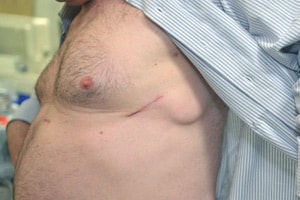
On January 22, 2016, device maker St. Jude Medical announced that a voluntary global field safety action related for the company’s Optisure Dual Coil Defibrillation Leads has now been designated a Class 1 advisory by the Food and Drug Administration (FDA). Damaged leads may lead to an electrical malfunction wherein the defibrillator cannot deliver appropriate […]

On January 22, 2016, device maker St. Jude Medical announced that a voluntary global field safety action related for the company’s Optisure Dual Coil Defibrillation Leads has now been designated a Class 1 advisory by the Food and Drug Administration (FDA). Damaged leads may lead to an electrical malfunction wherein the defibrillator cannot deliver appropriate high voltage therapy.
The Class 1 designation is reserved for situations in which the use of the faulty devices may cause serious injury or death.
The Class 1 advisory for Optisure defibrillation leads applies to a group of 447 Optisure leads, 278 of which were distributed in the United States, which may have been damaged during a manufacturing step, FierceMedicalDevices. Thus far, the company has received no reports of lead malfunction or patient injuries related to this issue.
The advisory notification involves the worldwide distribution of 447 Optisure dual coil defibrillation leads manufactured and distributed by St. Jude Medical. The advisory relates to units within the following models: LDA220, LDA220Q, LDA230Q, and LDP220Q. The company is not asking doctors to return the affected leads, and a replacement is unlikely to be needed in most cases.
Optisure dual coil defibrillation leads are used in conjunction with implantable cardioverter defibrillators (ICDs), which monitor the heartbeat of patients suffering from heart rhythm disorders. The ICD’s leads deliver electric current to the heart to help restore the heart to its normal rhythm when needed, FierceMedicalDevices explains.
On November 3, 2015, St. Jude Medical began notifying physicians whose patients had been implanted with the 447 Optisure dual coil leads subject to this advisory. An investigation revealed a variation in the process to remove excess medical adhesive used in the assembly of the superior vena cava (SVC) shock coil leads could result in cuts to the insulation of the lead, FierceMedicalDevices reports. Depending on device programming and the depth of the inadvertent cut to the insulation, the cut in the insulation can potentially lead to an electrical malfunction wherein the defibrillator cannot deliver appropriate high voltage therapy.
St. Jude Medical said the risk of the Optisure leads being unable to deliver appropriate high voltage therapy is very low and the risks can be prevented with reprogramming. The firm says the leads can also be monitored from home using the Merlin.net remote care system. The company has not received any reports of compromised performance of the impacted Optisure leads, according to FierceMedicalDevices. St. Jude Medical is in the process of providing an updated advisory notice to physicians to further ensure that physicians are aware of recommendations for managing their patients implanted with the impacted leads.
The majority of patients implanted with the compromised Optisure leads have defibrillation devices equipped with the St. Jude Medical DynamicTx feature that provides additional protection to help ensure delivery of appropriate high voltage therapy even in the case of a compromised lead. For these patients, physicians are advised to enroll patients in the Merlin.net patient care network, ensure the DynamicTx feature is programmed “on” and then monitor patients as per normal follow-up protocols.
For more information, patients or physicians can visit www.sjm.com/optisureadvisory or call the St. Jude Medical customer service team 24 hours a day at (800) 328-9634.


